Nadia Jamil’s extraordinary battle with cancer
The veteran actor opens up about her intensely painful but humbling journey
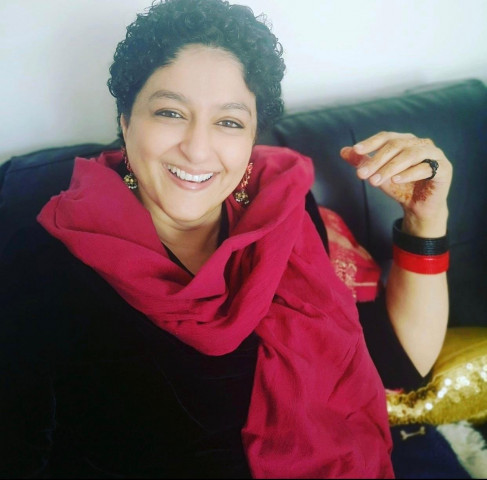
Fans of veteran actor Nadia Jamil, achingly watching her traverse the trammels of cancer, took a sigh of relief last month when she announced recovery. While she was being treated for the disease, the world outside, too, had been caught off guards by calamitous morbidity — pandemic. This meant coerced isolation - unfortunately, also for those who needed human touch to thrive and survive, including the actor herself.
The Express Tribune caught up with Nadia Jamil about her extraordinary battle as she looked back on her journey that, as she feels, wrought her anew.
ET: When you look back at your closest brush with "death", cancer, please tell us what do you now see from a safe distance - present?
NJ: An intensely painful journey to healing in ways I never even knew I needed to.
ET: Could you please call to your mind - If it's not triggering or intruding over intimate aspects of it - and tell us about what must've been a languorous wait for your result?
NJ: I was diagnosed on March 31. I remember suspecting it the night I felt the lump. It was a very alien, hard pea in my breast. I had been doing regular self-checks and felt the ominous strangeness of it immediately.
ET: You have said it on more than one occasion that the sight of a tree - buffeted by storms, pelted with heavy rains and forever beholden to the whims of weather - deepen the credo of your life. Tell us what trees mean for you? Where did that come from?
NJ: Trees have always taken care of me. I always found shelter in them, with them. I would climb in their arms and find solace. Now I simply see them as my dear friends. If I have trees near me, l cannot feel alone. They know how to bend flexibly to the storms in life, their branches, trunks learn to adapt to changing weather, terrain, everything.
They nurture and by nurturing they survive. It is by giving oxygen that they continue to breathe and live. They are home to insects, birds, animals, a shade to us. No matter what storm is hitting them. Their leaves, branches, fruit all rot and fall to the ground as winter attacks them. But they stand firm, knowing, spring will come and their branches will grow back, their leaves, flowers, fruits grow back in full bloom. The trees are magnificent.
ET: When you finally got discharged from the hospital and were declared cured, tell us where did you return to? Or, to be precise: Did you feel like clinging back to your older, pre-cancer self or did you come back to an unknown, new reality? What was that feeling like?
NJ: I embraced the fresh air, the sky, the life and the new me. I definitely did not feel like clinging to the older me. The pre-cancer Nadia heavily relied on the validations offered by others. She was constantly restless, easily angered, easily hurt and gave too much of herself to others. That’s all past now.
Today, I stop and listen to what the child within me needs. Nurturing, taking care of others, loving are all integral parts of my life now, but I'm more rooted and know how to nourish my own soul. I also protect myself from toxic situations. I've had enough poison injected into my veins.
I used to be pulled back into the past and stress about the future. Now, I live in the present moment. I don't want to weep for a past that's over or a future that may or may not even happen. I don't want to deal with phantoms at the cost of experiencing the present, in a positive, wholesome, grateful way.
Today I stop and listen to what the child within me needs. I'm more rooted and know how to nourish my own soul. I also protect myself from toxic situations. I've had enough poison injected into my veins.
So the next few years every decision I am making is to heal, strengthen and empower my ‘nafs’. Only then can I give back to society.
When I'm stronger both things will happen simultaneously InshaAllah. Letting go and unlearning to strengthen my ‘nafs’ and serving children, humanity, life on this planet as my heart years to. I'll be able to do the latter without burning out.
ET: You’ve also been vociferous about social causes. Women across the world are unmooring themselves from patriarchal restraints. The #metoo erupted as a gigantic tectonic shift in the emerging biopolitics and brought the power site under vehement scrutiny. You shared your experience of sexual assault too.
NJ: I shared my own experience with assault years before the #MeToo movement became a hashtag.
It’s important and imperative to give survivors of assault a space to share their stories. It doesn't have to be a hashtag or trend. Although trends give momentum to a movement or a cause, the process of opening society up to express pain and learn from it, and process is even important.
Too many people stay closeted or in fear of sharing their traumas. We need to make the world a safer space for them and ourselves.
It's not just women, many young men and transgendered people need to be able to express, share their stories of pain, in order to let go and heal from that pain and find solutions. The violence with which brutal patriarchal customs operate is destroying the lives of too many, too often. It’s horrifying.
Every voice counts. For years speaking about my experiences gave me solace, strength and comfort. I don't need to go back there anymore. The present is a powerful healing time for me. I've realised the child who was hurt, damaged and traumatised by those experiences, became a woman allowing similar experiences to haunt her.
Now, that child, and that woman, all of Nadia Jamil is only one person's responsibility: Nadia Jamil's. Allah has blessed me with an army within me that has and will save my life, over and over again.
ET: And lastly, tell us about your future plans. Are we going to see a completely different and 'reinvented' Nadia Jamil on the screen, since you’ve been hinting at the personal transformation that you experienced in so many ways? Is it going to affect the selection of roles?
NJ: I don't plan the future. For now, I intend to heal and focus on my healing process. My body, mind and soul have been through quite a journey and need me to focus on their healing.
I'm meeting people and teachers who are inspiring and guiding me through this healing. Experts in functional medicine, holistic living, mediation, mindfulness, boxing, dance, yoga are teaching me.
It's a me-time. I’m gardening, cooking, and walking dogs. I tell stories to children, give drama classes, read, write. I have just finished recording a book for Penguin, Across the Line by Nayanika Mahtani.
I intend to travel to Hunza next month. I have a bucket list for travel. I'm enjoying speaking to people. If a good script comes up, I'll definitely look at it. But no concrete plans to do anything but pace my healing and build strength, physical and mental.
When I went for the check-up they warned me beforehand, that it did look ominous. When I went for the biopsy and I was told it was cancer... I managed to be “okay”, or, at least I pulled off an expression of being “okay”. I remained okay even during the surgery, which happened within a week because it was a grade 3 tumour. But I realise it was being gradually pushed to an explosive end as if the ultimate purpose of the onslaught of trials was an outburst of tears that brought me to my knees. When the scans became more and more intrusive and scary, I finally broke down the day of my liver scan.
And all of this was taking place during the pandemic lockdown. I was frightened, overwhelmed and chemotherapy loomed ahead like a scalding dry desert I didn't think I was going to survive alone. My son and my mother made sure they never failed to attend to me. My other son and brother Fahd were with me on the phone nearly every day.
I also drew a great deal of strength from people I didn't even know. It became easier and easier. Angels dropped me to chemo and radiation, and back. I never had to use public transport. I don't own a car. Covid-19 was really scary so that was a huge and unexpected relief. I feel blessed. In fact, I'd say, generally, it was strangers who I didn't know at the time, who really came to rescue and nurse my pain. My own family and friends mostly disappeared. But I learned to expect from no one, but myself. That way anything that comes is a bonus.
ET: And how did you then climb back to the boat when to borrow a poet's words, "lashed your ocean to madness"?
NJ: It did. End of April, the day they scanned my liver. When it hit me, I thought I will never learn how to live again. The slate had been wiped clean. The daunting question was: how to let go and survive heartbreak, a potentially fatal disease and then a mind assaulted by depression – all at the same time.
But I was given a new lease on life and I survived. Ironically, it was pain that helped me to evolve and move on. I now find myself grateful for and to everything, both the pain and pleasure. I've learned to cash in on and relish both my sanity and my madness.
If my sanity keeps me grounded, letting go of it lets me be high on energy, nature, life, the unseen and the seen. I'm loving every second of being alive. I realised it wasn't cancer or any one person's absence that had caused me to break. Those were just the triggers to tip a bucket that had been filling up since I was 4 years old. The first time I had to deal with abuse of any sort.
ET: We saw that you did not shy away from accepting your "mad" as Pascal puts it, as your social media accounts turned into a candid broadcast of your cancer journey. How important do you think it is to externalise suffering and use Twitter as an outlet for your 2am vulnerable and intemperate moods?
NJ: Yes. But I didn't reach out expecting anyone to hear. I just needed to share. Get the demons out of my head. I did it to feel less alone, at the time. Then it became a healing journal, for me and the angels who would cheer me on, give me strength on social media. Speaking out helped me a lot. I didn't have an ego and didn't feel embarrassed. I feel vulnerable and I feel proud to have shared that vulnerability. It paid off. I was showered with blessings and prayers. I am convinced their prayers worked. And I realised humanity is still alive and brimming with so many amazing generous kind people.
ET: Hair is a profound symbol of self and, in many cases, a site for cultural readability of ourselves. Did chemo-induced baldness affect you, particularly in terms of your profession that requires certain tailoring of your personality?
NJ: I was very scared of being bald. My main concern obviously pertained to my profession. I thought I would no longer get work without hair. So, in the first two chemotherapy cycles, I would wear a hat that froze my head. It was very painful but I had to endure it to protect my hair.
Sadly, my hair started falling out in huge clumps after the second cycle. I was devastated. I remember the night before I removed it, I washed whatever was left with rose shampoo and conditioner, loving it and sobbing. Then, finally, it had to be shaved. As it was being shaved, I had the strangest feeling. As it fell, I felt more and more liberated. When it was all off I felt absolutely fantastic! I looked at my face in the mirror, prepared to deal with whatever I saw and I really liked my head, my face, my eyes, for the first time ever in my life. I had never appreciated my own face before.
I miss my bald head. It helped me face myself. I realised I used to hide behind my hair, behind people, work. The only reason I'm growing it is to find work on desi TV. It gets too hot for wigs here.
Have something to add to the story? Share it in the comments below.

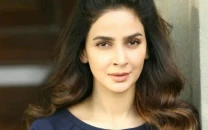

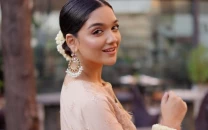
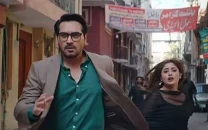
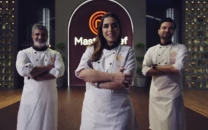
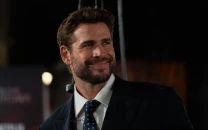





1724319076-0/Untitled-design-(5)1724319076-0-208x130.webp)






COMMENTS
Comments are moderated and generally will be posted if they are on-topic and not abusive.
For more information, please see our Comments FAQ